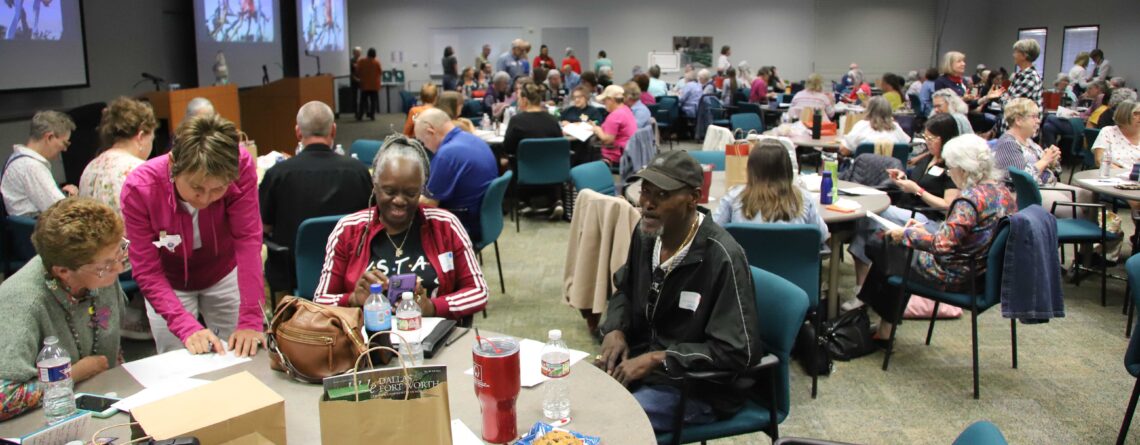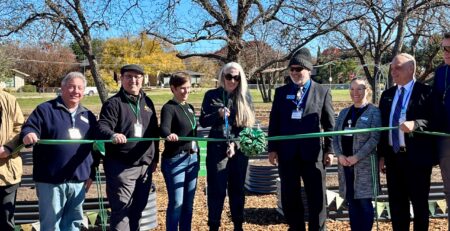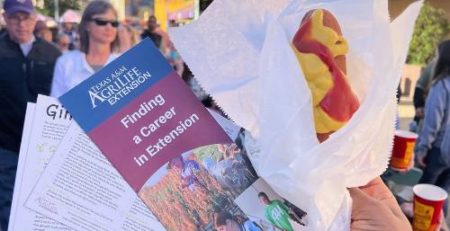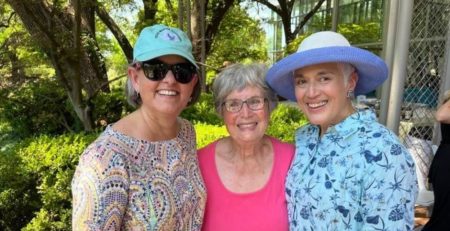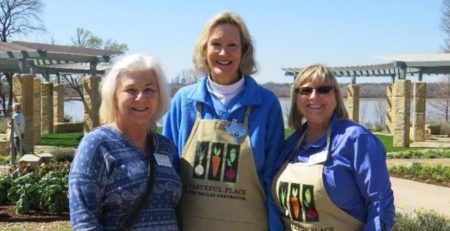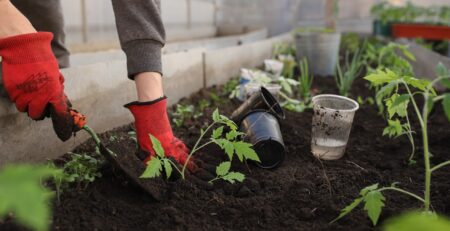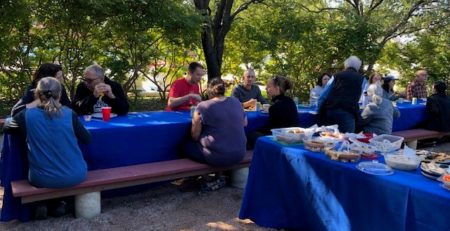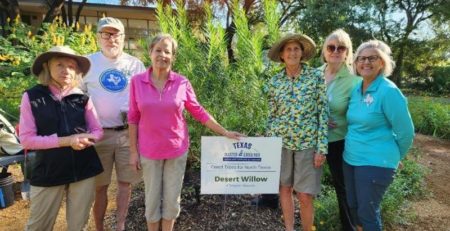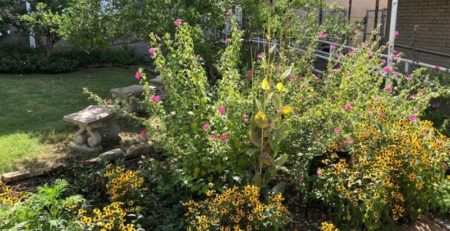Slow Gardening, Texas Style
What a delightful time was had by all who were lucky enough to attend the “Slow Gardening, Texas Style” education event at Dallas College, Brookhaven campus, featuring Felder Rushing and Callie Works-Leary. Special thanks to Dallas County Master Gardener(DCMG) Denise Streuber and her team for coordinating such a special day, which even included a chance to view the “ring of fire” during the lunch break. As one of the attendees exclaimed, “I’ve never learned so much and laughed so hard at the same time!”
To describe Felder Rushing as “quirky” barely describes this best-selling author, speaker, former extension agent, and NPR radio host. Felder draws smiley faces on tomatoes, uses street potholes as planters, and spray paints dead magnolia trees. Felder entertained a packed house, introducing gardeners to a movement he has named “Slow Gardening.” He has written a book by the same name. “It’s gardening without all the bells and whistles.” Felder said, for example, gardeners don’t have to have a soil test because “You don’t need them.” No audible gasps were heard from the sold-out crowd that included many MGs. Another useless practice he described is putting eggshells in the soil. He said “You can come back 20 years later and they’ll still be there.” Felder also questioned the value of growing zones. North Texas and England are in the same growing zone, for example, but growing conditions are very different. Felder recommends creating a zone called “North Texas.”
Composting is a subject which Felder believes has been overly complicated. He dismisses the usefulness of green and brown ratios and ignores the advice not to compost meat. As he explained, “I once composted a raccoon” and “Came back a year later and
found a pile of bones.” Felder said he could make compost in a couple of weeks “But it about killed me.” His rules for composting typify slow gardening: quit throwing stuff away and pile it up somewhere.
Slow gardening, said Felder, includes savoring what you do, doing what you want to, and acting like you don’t care. Felder does what he wants when decorating his garden. He’s a fan of bottle trees
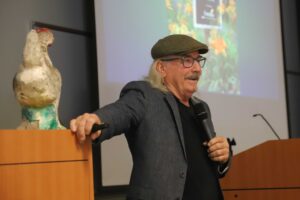
Felder Rushing
and has written a book about these colorful creations. He calls them “redneck Chihulies,” in reference to the high-dollar glass sculptures that grace museums and botanical gardens world-wide. Felder’s neighbors don’t always share his fondness for bottle trees. When a neighbor said she thought his bottle tree was tacky, he pointed out that she was wearing dangly things hanging from holes in her ears. “We are even” he said, with a mic-drop motion.
As examples of using things you have to hold plants, besides planting in a pothole in the middle of the street as mentioned, Felder appreciates growing things in tree stumps, bathtubs, toilets, and car tires. And to those who may not like plants growing in tires, Felder says “Shut up.”
During his presentation, Felder proudly displayed a cement chicken that he inherited from his grandmother. It’s a piece of yard art that he said calms him down. The chicken adorns the podium, standing sentry over Felder. This treasure exemplifies the kind of thing that slow gardeners enjoy. “It tells them they’re home,” said Felder. “That they’re safe.”
Henry David Thoreau’s sage advice, “Simplify, simplify, simplify,” must have been the mantra for the second speaker of the day, DCMG Callie Works-Leary, a professional garden educator and the founder of the Dallas Garden School. Captivating the audience in her polished, yet engaging, style, she shared her inspiring “recipe” for a successful vegetable harvest. After much research, study, and countless trials and tribulations, Callie condensed her formula for growing vegetables into five simple rules:
· Grow more of less. Stick with the varieties and kinds of vegetables that consistently work.
· Ignore the summer. Grow primarily in two seasons, spring and fall, separated by a quiet period in summer.
· Embrace preservation. Learn to can and preserve your bounty for use all year long.
· Start your own seedlings, choosing just a few favorites, and save money.
· Keep it simple. Uncomplicated, yet effective, gardening methods are best.

DCMG Callie Works-Leary

